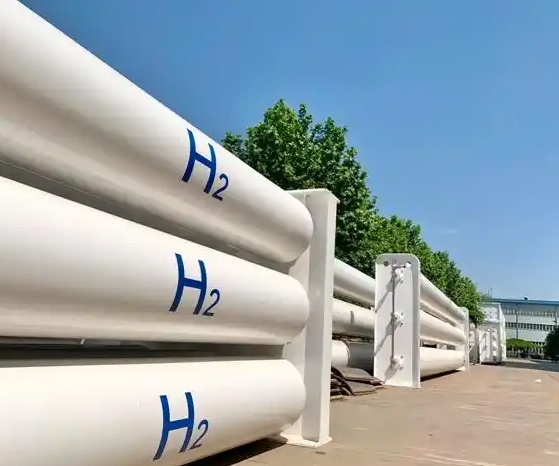
The approval was granted by four major international classification societies: Lloyd’s Register, the American Bureau of Shipping, Det Norske Veritas and the Korean Register.
Last month, HD KSOE also received approval from DNV for its welding procedure specification for shipboard liquefied hydrogen tanks, making it the first South Korean company to secure certification of its expertise in material selection, verification and welding techniques for such tanks.
While hydrogen is widely recognized as a clean energy source, its commercialization has faced hurdles due to the lack of standardized regulations and technical challenges, including hydrogen’s boil-off rate, which is nine times higher than liquefied natural gas. Developing vacuum-insulated tanks that maintain ultralow temperatures during operation requires significant precision and time, the company explained.
To address these challenges, HD KSOE partnered with DNV in a joint development project to establish detailed standards for liquefied hydrogen storage tanks, including welding procedures and evaluation criteria, securing certification from the Norway-based classification society.
The company said it also developed its own vacuum insulation system, which enables tanks to maintain a vacuum state at ultralow temperatures of minus 253 degrees Celsius during ship operation. This innovation ensures the secure transport of large volumes of hydrogen without significant loss and reduces the vacuum creation process from months to just a few days.
In addition to its technological advancements, HD Hyundai signed a memorandum of understanding early last year with global partners, including Woodside Energy, Hyundai Glovis and Japan’s Mitsui O.S.K. Lines, to develop a liquefied hydrogen transport value chain.
“The transition to a hydrogen-based society is inevitable,” an HD KSOE official said. "We will lead the development of hydrogen transportation and storage technology by sea, paving the way for global hydrogen commercialization.”